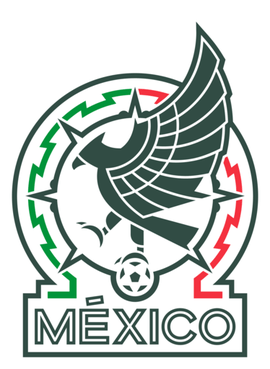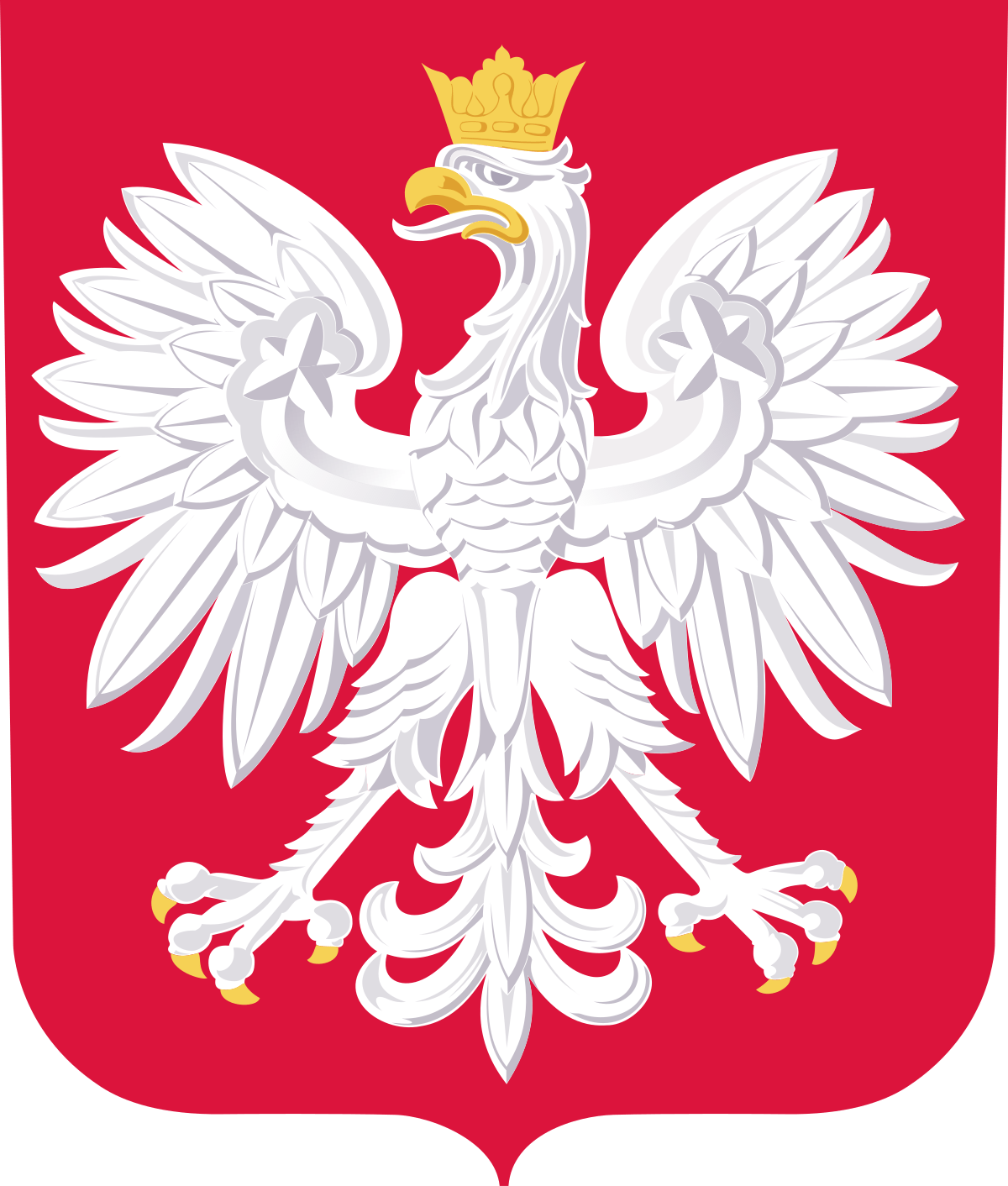
Mexico (El Tri/The Tricolor)
Quarter Finalists: 2 (1970, 1986)
Round of 16: 7 (1994, 1998, 2002, 2006, 2010, 2014, 2018)
Group Stage: 7 (1930, 1950, 1954, 1958, 1962, 1966, 1978)
Current FIFA Ranking: 13
Andrés Guardado
Read More
Héctor Herrera
Read More
Hirving Lozano
Read More
Gerardo Martino
Read More
Group C Schedule
Game 1 – Tuesday 22nd November 2022

Poland
19:00 Qatar Time/16:00 GMT
Stadium 974, Doha
Game 2 – Saturday 26th November 2022

Argentina
22:00 Qatar Time/19:00 GMT
Lusail Iconic Stadium, Lusail
Game 3 – Wednesday 30th November 2022

Saudi Arabia
22:00 Qatar Time/19:00 GMT
Lusail Iconic Stadium, Lusail
Notable Honours
In addition to two World Cup quarter-final appearances on home soil, Mexico have won a record 11 CONCACAF Championships/Gold Cups in addition to the Confederations Cup in 1999. The Mexicans have also reached the Copa America final on two separate occasions (1993 and 2001).
Beginnings
There can be no doubt that Mexicans love football. Indeed, the game is a religion in the country, where it is the national sport. This attitude is in contrast to their rivals, the United States, as many Americans have no interest in football. Mexico’s history in the FIFA World Cup goes back to the start. They were entrants for the inaugural tournament in 1930 and played in the World Cup’s first-ever match, a 4-1 defeat to France. They finished bottom of a group also containing Argentina and Chile and returned home without attaining a point.
Mexico did not qualify in 1934 and withdrew in 1938, so their next appearance was in 1950. Grouped with hosts Brazil, Yugoslavia and Switzerland, the Mexicans again lost all three games. Four more group stage eliminations occurred between 1954 and 1966, finishing bottom of their group twice. Mexico were the best team in North and Central America but could not cope against the stronger European and South American nations. They did emerge victorious at the 1965 CONCACAF Championship. Curiously, goalkeeper Antonio Carbajal then became the first player to appear in five World Cups in 1966. However, he conceded a joint-record 25 goals in 11 games.
1970: Hosts and Quarter-Finalists
Better was to come for Mexico when they were named hosts of the 1970 edition in 1964, the first country outside Europe or South America to be awarded hosting rights. The 1970 tournament was the first to be screened in colour in the United Kingdom and is remembered fondly. At the tournament, Mexico drew their first match with the Soviet Union. They then defeated El Salvador and Belgium to qualify for their fourth game, the quarter-final. All three group matches took place in their youthful but now very famous Azteca stadium. In the quarter-final, Jose Gonzalez gave them an early lead against Italy. However, the Italians fought back and romped to a 4-1 win. Still, a quarter-final represented Mexico’s best-ever performance in the competition. It was seen as a success and cheered by their fans.
Period of Decline Then First Ever Two-Time Hosts
Mexico won the CONCACAF Championship again in 1971. However, only one place was available to the CONCACAF region for West Germany ’74, and Haiti qualified at Mexico’s expense. Mexico did win a third CONCACAF Championship in 1977, though, this time as hosts, and then made it to Argentina ’78, but lost all three games and then failed to qualify again in 1982. Historically, a theme was developing – Mexico had been strong in a weak confederation but had failed to make an impact on the global stage in the World Cup.
Then, history was made by Mexico. Colombia had been selected as the host for the 1986 tournament but had to pull out due to economic difficulties. Mexico stepped in and became the first country to host the tournament twice, within a period of only sixteen years. In 1985, a major earthquake in Mexico City cast doubt on the event, but it proceeded as scheduled. Playing all their games in the Azteca once more, Mexico defeated Belgium, drew with Paraguay, and then beat Iraq to qualify for the round of 16. Still playing in the Azteca, Bulgaria were defeated 2-0. Mexico had performed their best yet, reaching the quarter-finals and the ‘fifth game’. In their first match away from the Azteca in the quarter-final, Francisco Javier Cruz had a goal disallowed against West Germany. The Mexicans put in a spirited performance but eventually lost on penalties. Still, it had been a very successful tournament for Mexico, with star forward Hugo Sanchez performing well. Sanchez, to this day, is remembered as one of Mexico’s greatest-ever players.
Best Ever Prolonged Era and the Holy Grail of the Fifth Game
FIFA banned the Mexicans from Italia ’90 for using overage players in the 1989 FIFA World Youth Championship. However, the last 29 years have been the best period of Mexican football ever. Between 1993 and 2019, Mexico won the Gold Cup (which succeeded the CONCACAF Championship in 1991) a record eight times. Indeed, as the USA has grown as a football power in the region in the last 30 years, the Mexicans have begun a storied and bitter rivalry with the Americans on the pitch. This feud has been fuelled by politics and cultural differences. Mexico also qualified for seven consecutive editions of the World Cup between 1994 and 2018, with 2022 being their eighth. Many great players have graced the Mexican team in the last thirty years, such as record appearance-making defender Claudio Suarez, fellow centre-back Rafael Marquez, and forwards Jared Borgetti and Cuauhtemoc Blanco. And, of course, who can forget eccentric goalkeeper Jorge Campos – the tiny stopper who wore the multicoloured jerseys?
However, there has been a problem – in all seven tournaments, Mexico have been eliminated in the round of sixteen. They have been incapable of qualifying for the quarter-final or ‘fifth game’ on foreign soil. The closest they have come is in Brazil in 2014, where they led the Netherlands 1-0 with a Giovani dos Santos goal. However, midfielder Wesley Sneijder equalised for the Dutch late on. Then controversy ensued in stoppage time when Dutch winger Arjen Robben tumbled theatrically in the 18-yard box after a Rafael Marquez challenge. A penalty was awarded, which was converted by Klaas-Jan Huntelaar to eliminate the Mexicans. Robben is still a hated figure in Mexico as a result. The 2018 tournament was more routine, with Mexico’s elimination by favourites Brazil. Coach Gerardo Martino will be hoping that he can write his name into Mexican folklore when the team travel to Qatar. The group and the potential round of sixteen opponents are challenging. However, if Martino becomes the first Mexico coach to lead the team to a fifth game on foreign soil, the frustration of recent years will be washed away.
Road to Qualification
CONCACAF Third Round Group: 2nd
Record: Played 14 W:8 D:4 L:2 F:17 A:8 GD:+9 Points:28
Date of Qualification: 30th March 2022
Mexico played 14 matches in a double round robin; such is the nature of the eight-team ‘octagonal’ final group round in CONCACAF World Cup qualification. There were two more teams as it had previously been six teams in the ‘hexagonal’. The top three teams would qualify automatically, with fourth place entering an inter-confederation play-off. Mexico started well, with a late Henry Martin goal defeating Jamaica in Mexico City. An Orbelin Pineda penalty won the next game away in Costa Rica, giving Mexico six points from six. However, this was followed up by 1-1 draws away in Panama and at home to Canada. Comfortable wins against Honduras and El Salvador followed before a disappointing 2-0 defeat against bitter rivals the USA in Cincinnati. What followed was incredible as the Mexicans travelled in November 2021 to a high-flying Canadian team to play in what has now been dubbed ‘Iceteca’ (a pun on Azteca, Mexico’s famous home stadium). In snowy conditions in Edmonton, and at a temperature of 16 degrees Fahrenheit/minus 9 degrees Celsius, Canada defeated Mexico in a World Cup qualifier for the first time since 1976 to take control at the top of the group.
Things were now looking a little trickier for the Mexicans. However, they picked up eight of the following twelve points to go into the penultimate matchday on 22 points, the same as the USA and trailing Canada by three. More troubling was that Costa Rica and Panama were close behind, on 19 and 18 respectively. However, Panama still had to play the Americans and the Canadians, and Costa Rica’s final game was at home to the States. Realistically, Mexico needed to win at least one of the last two games to be sure of booking their place in Qatar. A second-half winner from Edson Alvarez in Honduras, a 2-1 win for Costa Rica in El Salvador, and a 5-1 USA humbling of Panama ended the Panamanians’ hopes. It stood as Canada 28, USA 25, Mexico 25, and Costa Rica 22 with one match to play. Mexico knew that only a defeat at home, Costa Rican win against the USA, and a highly unlikely five-goal swing could stop them from qualifying. They made light work of El Salvador in the Azteca with two first-half goals to confirm their qualification on the last matchday. It was one of the tougher confederations to qualify from, with five competitive teams and a resurgent Canadian side, but Mexico made it. No Mexican player was prolific over the 14 games, with Raul Jimenez (three goals) finishing the octagonal as their top scorer.
Meet the Coach: Gerardo Martino (age 59)
Argentine ‘Tata’ Martino was an attacking midfielder who played for home town club Newell’s Old Boys in Rosario between 1980 and 1990. He spent most of his career there, playing a club record 505 matches. After retirement, Martino spent eight years between 1998 and 2006 nomadically managing clubs in Argentina and Paraguay, winning the Paraguayan league four times between 2002 and 2006. He then found success with the Paraguay national team, reaching the quarter-finals of South Africa in 2010 and being runners-up to Uruguay in the Copa America in Argentina a year later.
Martino returned to coach his old club between 2012 and 2013. He revived a struggling Newell’s in his first season, saving them from relegation to the Argentine second tier. He then won the second stage of the Argentine Primera Division the following season (the 2013 Torneo Final). He also reached the semi-finals of the 2013 Copa Libertadores (the CONMEBOL equivalent of the UEFA Champions League). As a result of this turnaround, his reputation increased dramatically as his achievements made noise in Europe. In the summer of 2013, he was appointed FC Barcelona manager to replace the unwell Tito Vilanova, who later tragically died from cancer complications. Many cynics claimed Martino was only appointed as a ‘yes man’ to accommodate the wishes of senior players and fellow countrymen Lionel Messi and Javier Mascherano. However, Martino started well at Camp Nou, staying unbeaten in his first 20 matches. However, after a Champions League loss to Ajax in his twenty-first game, things started to go downhill. Barca ended the season without winning any of the three major competitions (La Liga, Copa del Rey, and Champions League). Indeed, they were eliminated from Europe by Atletico Madrid in the quarter-finals of the Champions League and lost La Liga to the same club on the final day. It had been the first time Barcelona had not reached at least the semi-finals of the Champions League since 2007, and Martino left the club at the end of the season.
He then became Argentina’s coach, reuniting with Messi and Mascherano from 2014 to 2016. The Argentines reached the 2015 Copa America final and the Copa America Centenario Final the following year as part of the tournament’s hundredth anniversary. Messi and the team played well in both competitions but lost them both to Chile, on penalties each time. Martino had been unlucky not to win either final but resigned in the summer of 2016. He proceeded to take over Atlanta United in the MLS. Subsequently, Martino won the 2018 MLS Cup, crowning United league champions. However, after a fourth consecutive short spell in a job, he left his post that summer.
Martino took over as Mexico coach in January 2019 and is closing in on four years in the job, his most prolonged spell since his Paraguay post. His assignment started well, with Mexico winning the 2019 CONCACAF Gold Cup, defeating rivals the USA in the final in Chicago. However, the roles were reversed when the USA claimed revenge in the 2021 edition in Nevada. Mexico qualified rather sluggishly for Qatar, and Martino faced some pressure after the consecutive defeats in Cincinnati and Edmonton. However, they will travel to Qatar looking to finally put an end to the ‘fifth game’ curse. Martino is well versed in possession play, quick passing, and high pressing, as many of his teams have tried to play that style – it is partly what attracted Barcelona to him. Despite being lethargic at times and only averaging 1.2 goals per game in qualifying, the Mexicans are a different animal in tournament settings. Martino will look to enthrall viewers in Qatar.
Possible Starting XI and Style of Play

Martino is likely to stick to his favoured 4-3-3 formation. In goal, veteran Guillermo Ochoa remains in command of the position, and his experience will be vital. Martino has adequate backup in Alfredo Talavera and Rodolfo Cota. Hector Moreno is slower than he used to be but still superb in the air and comfortable on the ball. He will likely be partnered by Cesar Montes or Nestor Araujo. There is further depth here with Johan Vasquez. Out wide, fullbacks Jorge Sanchez and Jesus Gallardo will look to get forward. The midfield takes care of itself, with the combative Edson Alvarez sitting behind the dynamic and talented Hector Herrera and veteran Andres Guardado. Guardado, as captain, will be vital in his leadership and composure. If Martino decides his first-choice midfield is too immobile, Luis Chavez and Carlos Rodriguez are capable understudies
On the flanks, Jesus Corona has not made it due to injury. He would have been an automatic selection. As a result, one of Orbelin Pineda or Alexis Vega is likely to start. On the other side, talented, tricky and fast attacker Hirving Lozano is first-choice. Like Corona, star striker Raul Jimenez has his injury woes. If he can’t play his way into fitness during the tournament, Henry Martin may well take his spot. The controversial Carlos Vela has ruled himself out, and Javier Hernandez, the record goalscorer for Mexico with 52 goals, has not been called up. Martino has been criticised but will try to play expansive football. However, he is not afraid to go direct to mix it up.
Squad List
Goalkeepers: Guillermo Ochoa, Alfredo Talavera, Rodolfo Cota
Defenders: Kevin Alvarez, Nestor Araujo, Gerardo Arteaga, Jesus Gallardo, Hector Moreno, Cesar Montes, Jorge Sanchez, Johan Vasquez
Midfielders: Edson Alvarez, Roberto Alvarado, Uriel Antuna, Luis Chavez, Andres Guardado, Erick Gutierrez, Hector Herrera, Orbelin Pineda, Carlos Rodriguez, Luis Romo
Forwards: Rogelio Funes Mori, Raul Jimenez, Hirving Lozano , Henry Martin, Alexis Vega
Key Players
Andrés Guardado
Date and Place of Birth: (28.09.1986, Guadalajara)
Current Club: Real Betis
Caps/Goals: 177/28
Now in the veteran stage of his career, Guardado started as an exciting flying winger at Atlas. However, in a similar vein to German legend Bastian Schweinsteiger, he transitioned to more of a tempo-setting central midfielder as he became more experienced. Injuries especially took their toll on his pace. Now he controls games for the team, is excellent from set pieces, and is defensively aware and hard to dispossess. As captain, his leadership will be crucial for Martino, as will his creativity and vision.
Héctor Herrera
Date and Place of Birth: (19.04.1990, Tijuana)
Current Club: Houston Dynamo
Caps/Goals: 101/10
A combative and hard-working central midfielder known for his energy, shooting, aggressive playing style and ability to mix it with the opposition, Herrera enjoyed a fine spell in Europe, first with Porto and then with Atletico Madrid. He is approaching the veteran stage of his career, having joined Houston Dynamo in MLS earlier this year. However, Herrera is still crucial to Martino in giving the Mexican team some bite and power. He can be undisciplined and caught on the counter, having collected 65 yellow cards and five red cards throughout his career.
Hirving Lozano
Date and Place of Birth: (30.07.1995, Mexico City)
Current Club: Napoli
Caps/Goals: 59/16
Lozano is an exciting talent in the prime of his career at high-flying Napoli. He is a classic right-footed winger who plays wide on the left and comes inside to create. Possessing strong dribbling and crossing abilities, Lozano is adept at assisting goals and has an eye for a strike from outside the box. He is also very defensively aware, having excellent pressing stats in his time at PSV Eindhoven, and is difficult to dispossess, winning lots of fouls. Lozano is a fiery character who can lose his cool and has collected a disproportionate number of red cards in his career. He will give his all for the cause and is crucial to the team’s creativity. Indeed, he could be one of the big entertainers this winter in his second World Cup.
